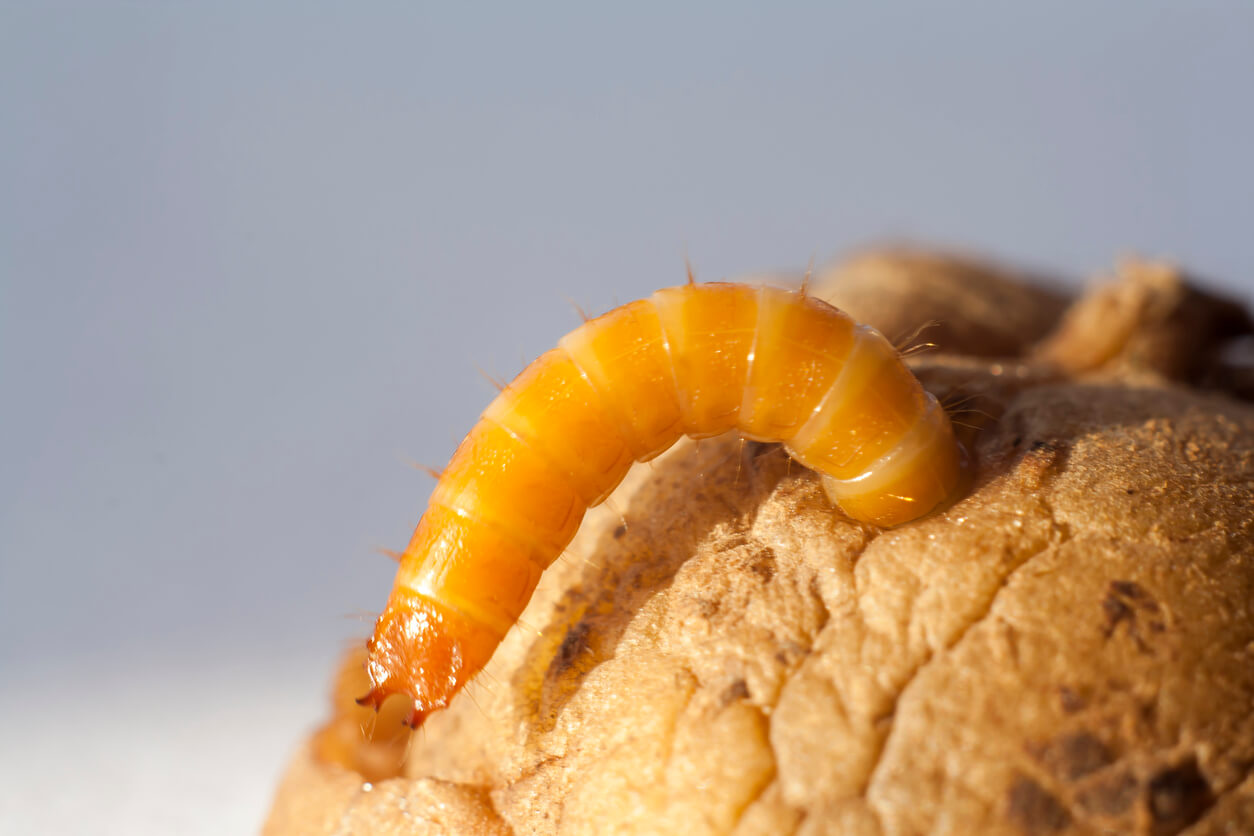
If you find small, dry, round holes in your tubers, look more closely, and you may discover wireworms in potatoes. Wireworms can cause significant damage in a garden, but they especially seem drawn to potatoes, carrots, and corn.
How can you tell that you have wireworms? And what should you do if you find them? For that matter, what are they? I’m glad you asked!
Discover 7 top tips for growing, harvesting, and enjoying tomatoes from your home garden—when you access the FREE guide The Best Way to Grow Tomatoes, right now!

What the heck are wireworms?
Wireworms are the larvae of click beetles. There are numerous species of wireworms, but for our purposes, that doesn’t make much difference in how we approach the issue.
The entire lifecycle of the wireworm is anywhere from 2 to 6 years. One of the reasons they survive for so long is that the majority of their lives is spent in the larval stage, living well below ground. In fact, wireworms may burrow two feet or more into the ground over the winter.
Older wireworms may be up to one inch long, with a hard, yellow-to-rust colored shell.
While the adult click beetles won’t damage your crops, wireworms in potatoes or other root crops can mean you’re in for some trouble. In addition to the direct damage to potatoes, they can also damage seeds and young root systems, resulting in poor plant development.
And to add insult to injury, the holes they drill into potatoes leave the vegetables more susceptible to diseases or other pests.
Got wireworms in potatoes? Here’s what to do.
If you find there are wireworms in your potatoes or other veggies in your garden, all is not lost. But, I will warn you that because wireworms dig so deep into the soil, they can be hard to manage. However, you do have some options.
Your best bet is to plant your garden as far away as possible from an area that you know has wireworms. Additionally, the Rutgers Cooperative Research & Extension mentions that you should “avoid planting a garden in soil that was previously sod or out of production. Wireworms build up in sod, and when the sod is replaced by garden crops, the wireworms readily feed on the roots of the new crops.”
They also suggest plowing in the fall to expose wireworms to birds and other potential predators that may not usually be able to reach them.
The University of California Statewide Integrated Pest Management Program also says to “avoid planting potatoes in fields immediately following clover, grass, pasture, or weedy alfalfa. Summer fallow will reduce wireworm numbers by drying the soil.” In fact, you can aid the drying process through solarization, which can do double duty and kill any weed seeds. Just water the soil deeply and cover it with clear plastic during the hottest part of the summer.
Another solution? Create bait traps by digging several small holes in your garden and filling them with carrots, freshly cut seed potato pieces, or a mixture of soaked seeds, such as wheat and oats. Cover the holes and adjacent soil with a piece of black plastic. In four or five days, examine the baited holes to determine if wireworms are present and manually dispose of them.
Lastly, there may be some soil-applied or seed treatment insecticides that can help control a wireworm infestation. Contact your local county Cooperative Extension office for a list of recommended insecticides that are appropriate for home gardens in your area.
Have you had to deal with wireworms in your garden? What did you do?
Discover 7 top tips for growing, harvesting, and enjoying tomatoes from your home garden—when you access the FREE guide The Best Way to Grow Tomatoes, right now!





I wonder about liming the garden area after the growing season – if this will kill off live wireworms and/or larvae and eggs.
Thank you for the info
One year, I lost an entire crop of potatoes to wireworms, so I searched for a safe, natural method to eradicate them. Enter beneficial nematodes. These are live, microscopic organisms that seek and destroy nematodes, and in the first year of putting them to work my potato crop was almost entirely unharmed. I have been using them ever since. Arbico Organics is my source, and their insect control selection is incredibly impressive. I use their NemAttack SC Beneficial Nematodes, which specifically target wireworms, along with many other damaging insects.
Thank you for the information!